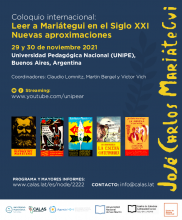Engels Week - Working Class Movement Library
From 22 to 28 November 2021 the Working Class Movement Library invites everyone to an Engels Week. This aims to raise awareness of Friedrich Engels and his work, find out what he means to people and explore how his work is still relevant today – as well as to draw attention to resources available at the Library which everyone can come and use.
MONDAY 22 November:
9.30am Why not mark the start of Engels Week by viewing a short film? It's

